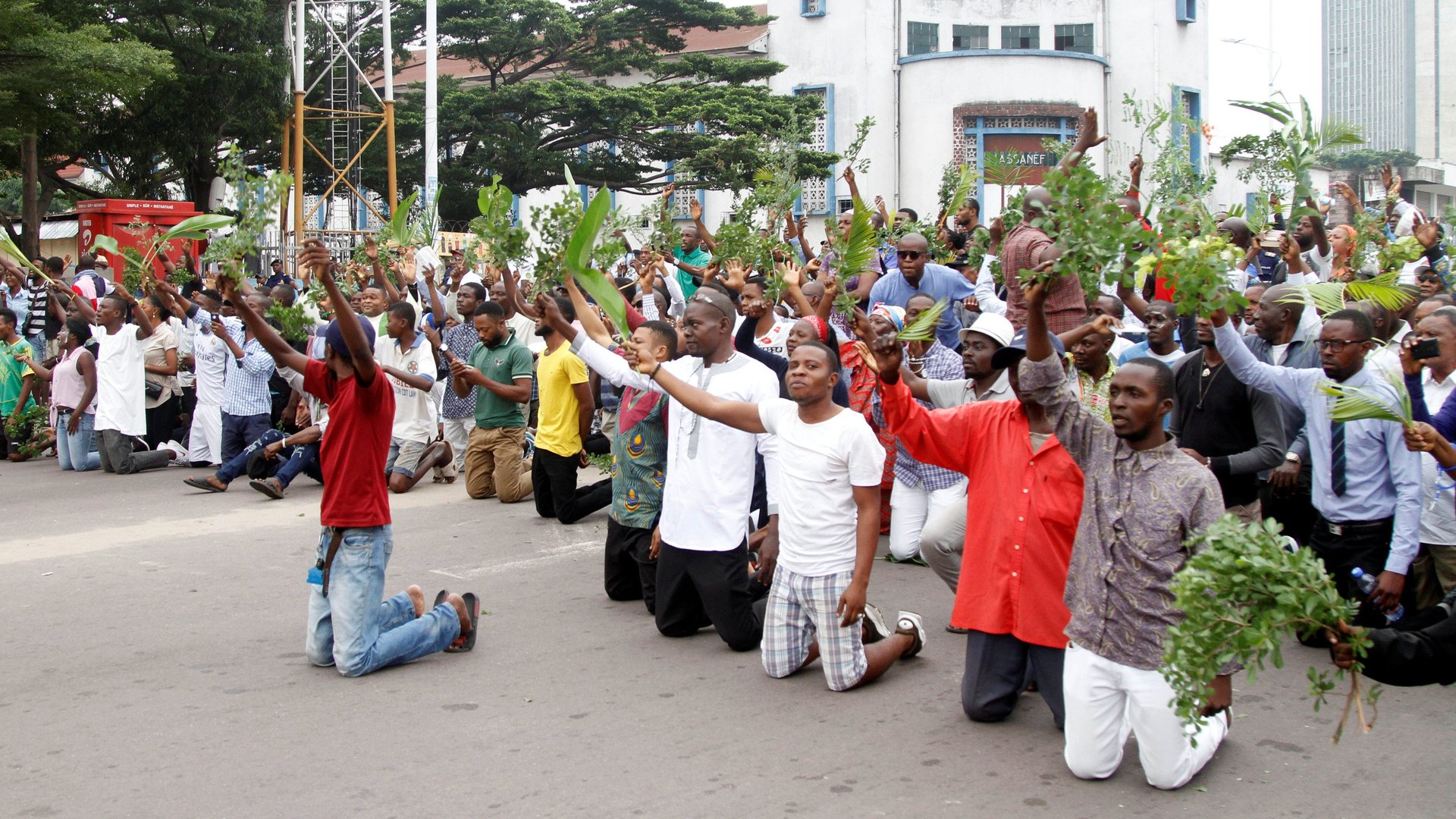There’s a decades-old law threatening digital freedom in DR Congo
The Democratic Republic of Congo has in recent years emerged as one of the most important nations to watch for digital rights violations in Africa. As the political reality in the central African nation heats up, authorities have resorted to a distinct tactic to keep demonstrations and anti-government rhetoric in check: shutting down the internet and SMS services.


The Democratic Republic of Congo has in recent years emerged as one of the most important nations to watch for digital rights violations in Africa. As the political reality in the central African nation heats up, authorities have resorted to a distinct tactic to keep demonstrations and anti-government rhetoric in check: shutting down the internet and SMS services.
Digital rights activists say a 16-year-old law has been instrumental in cracking down on internet accessibility. Passed in 2002, law No. 013/2002 (in French) governs the telecommunication sector and confers powers on the government to take charge of communication facilities in the interest of national security or public defense. Internet service providers, including Bharti Airtel and Orange Group, have often complied with government orders, fearing their licenses would be terminated if they refused to assent.
With an internet penetration of just 6.2%, the DR Congo has repeatedly cut off internet services to its more than 83 million people, blocked or throttled social media outlets, and surgically targeted services like WhatsApp, Facebook, YouTube, and Skype in order to hamper communication among protesters while allowing businesses like banks to operate. In 2017, the Collaboration on International ICT Policy in East and Southern Africa estimated the DR Congo was losing $2 million a day due to these shutdowns.
The latest restrictions came on Jan. 21 as Catholic church leaders called for peaceful protests against president Joseph Kabila’s 17-year rule. The new shutdown occurred less than a month after the New Year’s eve blackout, which lasted for about 48 hours as deadly violence rocked the country. Similar actions were taken in Aug. 2017, when authorities ordered internet capacity be slowed down so that it couldn’t be used to transmit images via social media ahead of nationwide strikes.
Paradigm Initiative, a Lagos-based digital advocacy group, notes that while the Congolese government is working to amend the 2002 act, the newly-proposed telecommunications bill still grants officials the powers to interfere with communications and conduct surveillance. The Criminal Code of 1940 and the Press Freedom Act of 1996 have also been cited as laws that restrict freedom of expression, digital rights, and the publication of sensitive information.
Blaise Ndola, a blogger and web activist in the DRC, said the government uses these laws “to shut down, monitor, and censor the internet on the pretext of preserving national security.” This will become all the more pressing in the run-up to DRC’s elections expected in December. The mineral-rich country has also suffered repeated bouts of unrest and violence as Kabila pushed the date of the polls—with uncertainty still looming over whether he actually wants to leave office.
After a three-day blackout, the internet is back in the DR Congo this morning (Jan. 24), but that doesn’t mean authorities won’t shut it down again. Julie Owono, the executive director of the Paris-based Internet Without Borders, said it is time ISPs dissociated themselves from censorship and challenged the government on its “illegal” demands.